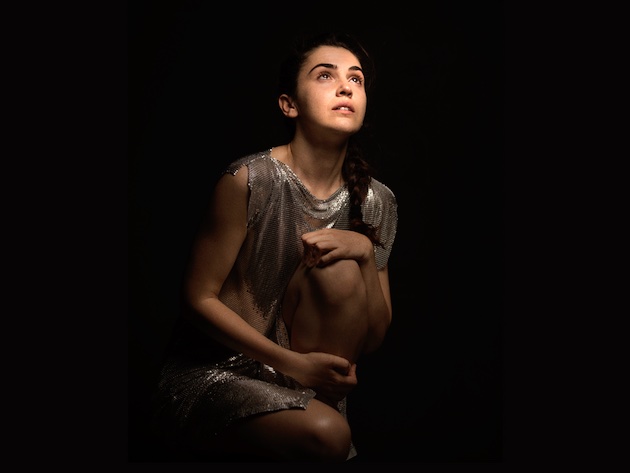
Joan of Arc by Maria Luisa Spaziani - whose death this year marks the tenth anniversary - starring Mersila Sokoli, is on stage at the Teatro di Villa Torlonia, directed by Luca De Fusco and music by Antonio Di Pofi.
At the centre of the piece is the almost mythical figure, still shrouded in mystery, of the "Maid of Orléans" to whom Spaziani, an illustrious scholar and French scholar, dedicated several studies and a poem in octaves of rhyming hendecasyllables entitled Joan of Arc - from which the play is based - which testifies to the author's long interest in this character.
According to tradition, the Maid, of humble peasant origins, felt called by God to liberate the French territory occupied by the English. Having then mysteriously obtained the command of an army, he showed excellent tactical-military skills and achieved significant victories, recovering from France part of the territory that had fallen into the hands of the English during the Hundred Years' War, victoriously leading the French armies against the English ones. But captured by the Burgundians in front of Compiègne, Joan was sold to the English by John of Luxembourg, vassal of the king of England. The English then subjected her to trial for heresy, at the end of which she was condemned to the stake and burned alive on 30 May 143, at just 19 years old.
But was she really the one who died at the stake? The author insinuates doubt by introducing a discordant version, according to which Joan was replaced at the stake, she was not burned but another in her place, while Joan married Robert des Armois. The author thus gives us a modern character who, having denied her destiny, experiences the torment of remorse until she herself finds liberation from evils by voluntarily throwing herself into the fire. The protagonist's monologue spreads across space, always poised between past and present, between memories and reality, becoming an intimate, almost subdued, anti-rhetorical conversation in which the audience wonders who the speaker really is: a madwoman who thinks she is Giovanna d'Arco or his ghost... The play deliberately leaves the answer ambiguous, making the figure of a woman whose story goes beyond the centuries to reach the present day stand out more than ever in this rereading.
Photo credits: Claudia Pajewski
Informations
Dal 3 al 13 ottobre 2024
ore 20.00
domenica ore 18.00
lunedì riposo
durata 1 ora
 Condividi
Condividi











































